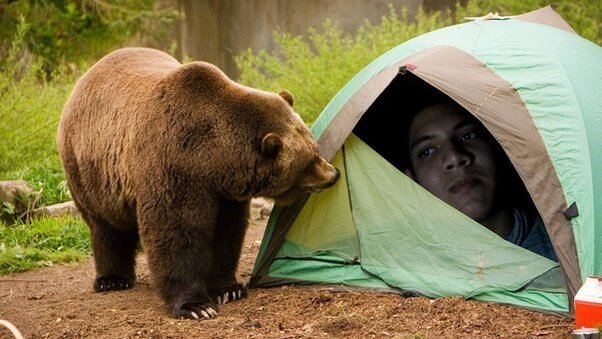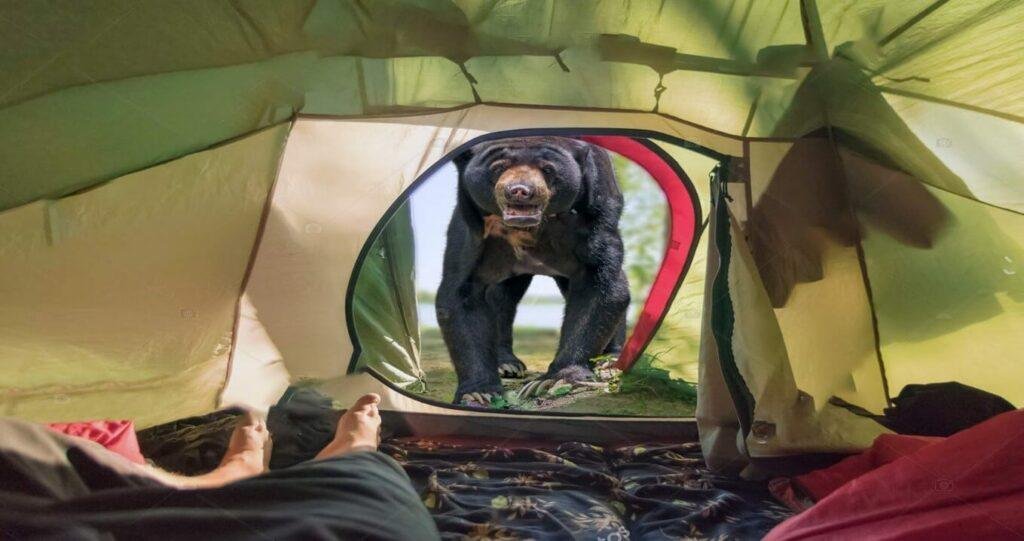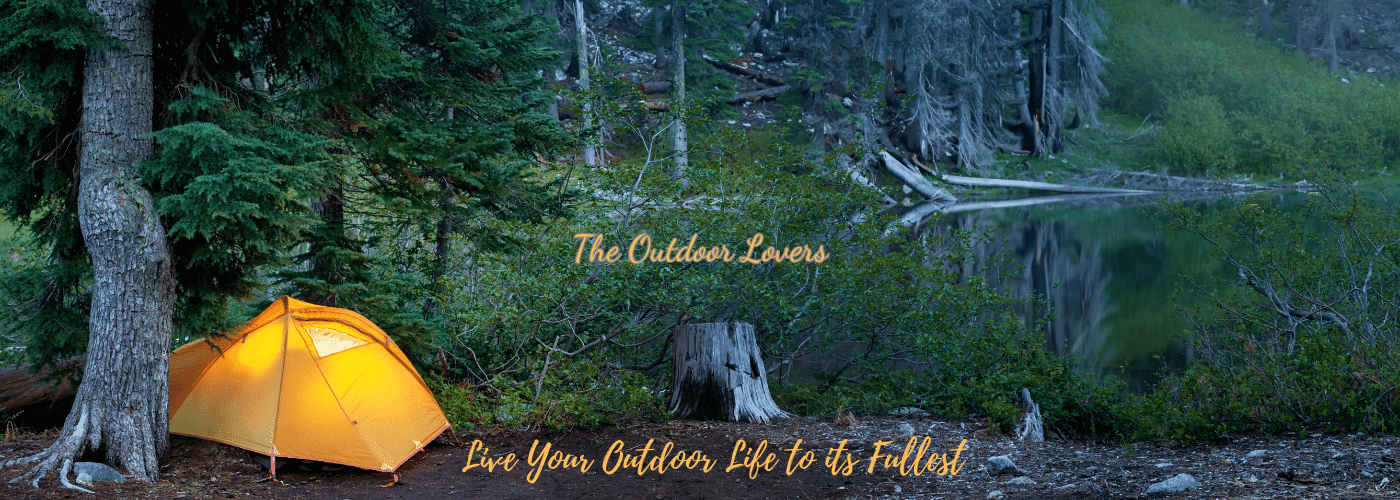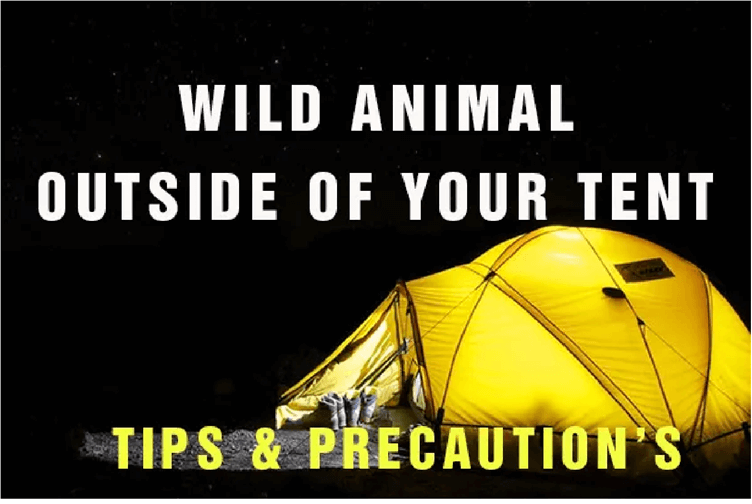There’s no doubt in the fact that “camping is fun.” Camping is a great way to feel nature’s sounds and escape all the stress and mental illness.But there are many more things than just weekend fun. We have often heard wild animals attacking people on the camping site.
So, in this article, we’ll try to figure out what to do if there is an animal outside your tent and how to handle them safely.
Whether it’s a black bear, mountain lion, coyote, etc., roaming outside your tent. There are different types of animals you can encounter outside your tent. Some can be omnivores, carnivores, or can both.
What To Do if there is an Animal Outside Your Tent?
You should take the below-listed steps if you feel an animal is nearby your tent.
- Determine the Behaviour of Animals
- Find the Best Way to Respond
- Determine The Risk
- Stay Calm
- Fight it
Listed above are steps you should consider if an animal is outside your tent – and also, if the animal is close enough and tries to get in, you can fight it or get away.
Other than these steps, you can also make some noise or use an animal restraint spray (Pepper spray). It may sound strange but speaking out loud will keep many wild creatures out of sight. Campfire sounds, roars, and other man-made noises such as car engines usually serve to scare off wildlife.
Determine the Behaviour of Animals
Steps to determine the behaviour of wild animals:
- Step 1: Check the surroundings before choosing your campsite. Try to find out any signs of wild animals (tracks, poop, etc.) that could be dangerous to you around your camp.
- Step 2: Place your camp in a snake restraint area, like a clean place or a place without large bushes. Snakes are generally found in brush and trees. They are not naturally poisonous, but they can sometimes be very aggressive.
- Step 3: You can make a noise if you see or hear something. Noise can scare them, and they may run away. It is especially important when camping near a lake, river, or creek.

Find the best way to respond.
Do not react recklessly to any wild animal. It could be dangerous. There are lots of animals and plants that can harm you for defence or food. Different areas have different biodiversity and environments, so some threats require special action. For example, one may not perform the same activity if one encounters a bear or a mountain lion. There is a need to act in a specific way to avoid potential damage.
Some common tips to respond calmly are:
- Get to know the wild– Listen, take stock of what the animal is doing; maybe once it realizes that it has nothing to do with being in your camp, it can go on its own. From the animal’s point of view, a human tent may be so unusual for them.
- Look before you step– Wildlife or animals are experts in camouflage. Most animal encounters occur when we startle or harm an unknown animal. If the animal doesn’t go away on its own, you can make a noise from your tent. Before going out to investigate, eliminate the possibility of surprises.
- Make some noise– As mentioned earlier, naturally humans are not animal prey. Listen and assess the situation- Are you in an area where animals get used to humans and see campsites as a feeding opportunity? If the animal knows you are there and the animal isn’t leaving from there, it is probably a good idea to get out of your tent. Avoid sudden movements or loud noises when leaving the tent and bring pepper spray with you. If necessary, shout, clap, do what you must – you don’t want this animal where you’re sleeping.
If you’re heading into the woods, don’t assume it’s full of thumpers and bumblebees. Wild animals are unpredictable. It doesn’t matter how some biologists try to explain why they’re attacking; You have only one life and you have the right to protect it.
And also, keep away from the dangerous part. Most wild animals are much stronger than humans, so if you’re attacked, your focus should be on avoiding serious injuries and protecting your vital areas, such as your head, throat, abdomen, etc.

Determine risk
A wild animal can cause unexpected injury if you are careless. Although there can be many risks from wild animals camping outside, I have listed two major risks from wild animals:
1. Diseases like rabies, plague, and other life-threatening diseases.
2. Physical injury.
Keep calm
Calming yourself is the first step in dealing with wild animals. Keep calm and take slow and deep breaths to avoid panic. A quiet mind can think better than a restless mind. This way, the chances of making the right life-saving decision are higher.
Wear Odourless clothes
Have you ever been to a restaurant, and you can clearly smell the food even hours after you leave from there? The same happens in the forest. The smell of cooking sticks to clothes and can attract bears, so, cooking in the wilderness will definitively release an interesting odour for wildlife. Store your “cooking clothes” in an airtight bag or container to reduce the risks of having intruders.
Conclusion
I profoundly hope that you will find this article helpful and that the tips and safety instructions listed above will also benefit you.
And a pro tip: Never run or make sudden movements when you encounter a wild animal around your tent or anywhere else. Follow the above procedures to protect yourself from being attacked by a wild animal. Be Safe And Have Fun.!

